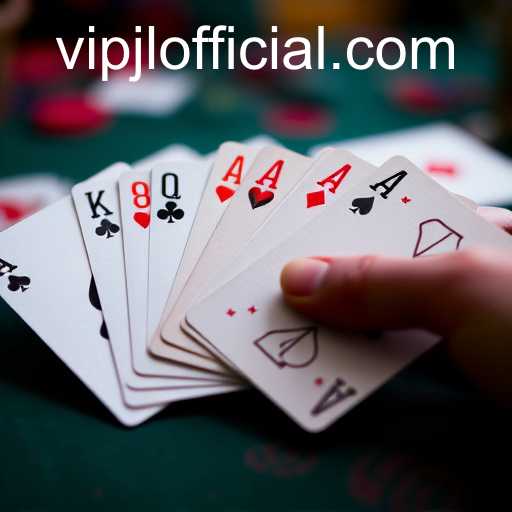An in-depth exploration of the various facets of card games with a special focus on VIPJL, examining their history, cultural significance, and ongoing popularity.
Card Games: A Gateway to Endless Entertainment
Card games have been a source of entertainment, competition, and social interaction for centuries. Within this realm lies a myriad of games distinct in their origins, rules, and appeal. Among them, the term VIPJL emerges, capturing the intrigue of card game enthusiasts around the world. Let's delve into the vibrant world of card games with a focus on this captivating aspect known as VIPJL.
Historical Significance of Card Games
The history of card games is as diverse as the cultures that have embraced them. Originating in ancient China as early as the Tang dynasty, the concept of playing cards gradually spread to Persia, India, and Europe. These early card games laid the foundation for the multitude of variations that followed. The invention of the printing press around the 15th century propelled the popularity of playing cards, making them more accessible to the masses.
In each region where card games integrated into society, they were often adapted to local customs and preferences, leading to a rich tapestry of gameplay traditions. From the intricate strategies of European games like Whist and Bridge to the tactical depth of Asian games such as Mahjong, card games possess a universal appeal.
The Cultural Impact of Card Games
Card games are not merely a pastime; they are a window into cultural values and societal norms. In many cultures, the structure and play of card games mirror life's complexities and hierarchies. Games like Poker and Blackjack, with their roots in betting and bluffing, reflect aspects of risk, probability, and psychology.
These games often serve as a social glue, bringing people together across different backgrounds. Gatherings over a round of cards are occasions for conversation, laughter, and sometimes even friendly rivalries. This cultural aspect of card games enhances communal relationships and fosters a sense of belonging.
VIPJL: The Enigma of Modern Card Games
The acronym VIPJL has emerged in the world of card games, stirring excitement and curiosity among players. While its exact definition might elude some, to seasoned card enthusiasts, VIPJL signifies more than just a title—it represents an elevated experience within the world of card games.
VIPJL could resemble a league or tier of playing, suggesting exclusivity and high stakes. This could be likened to prestigious poker tournaments or elite gatherings of players who wish to test their skills against the best. This aspect of card gaming appeals to individuals who not only seek entertainment but also pursue mastery and excellence.
Strategy and Skills in Card Games
One of the most fascinating elements of card games is the strategic depth they often require. Games such as Poker, Hearts, and Rummy involve keen tactical acumen, where players must weigh probabilities, bluff opponents, and navigate ever-changing dynamics. The cognitive challenge involved in mastering these games is a major draw for players seeking mental stimulation.
Playing card games often necessitates a combination of skills, including memory, mathematical prowess, and psychological insight. Fine-tuning these skills not only enhances performance in the game but also enriches cognitive abilities outside of the game.
Card Games in the Digital Age
The advent of digital technology has had a profound impact on card games, bringing them into the digital realm and expanding their reach. Online platforms offer players new opportunities to connect with opponents from around the world at any time, breaking down geographical barriers and creating global communities of card game enthusiasts.
Popular digital card games and applications offer a wide variety of formats, including AI-driven solitaire games, online multiplayer poker rooms, and competitive arenas for collectible card games. This digitization ensures that card games remain relevant and accessible to new generations of players.
Conclusion
Card games remain a timeless source of amusement and challenge. They are simple yet complex, social yet personal; a reflection of life's paradoxes. From their origins to the mysterious allure of VIPJL, card games have evolved and endured, offering players an avenue for entertainment, connection, and personal growth.




